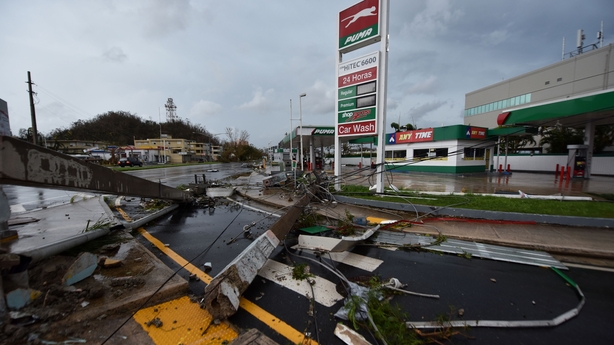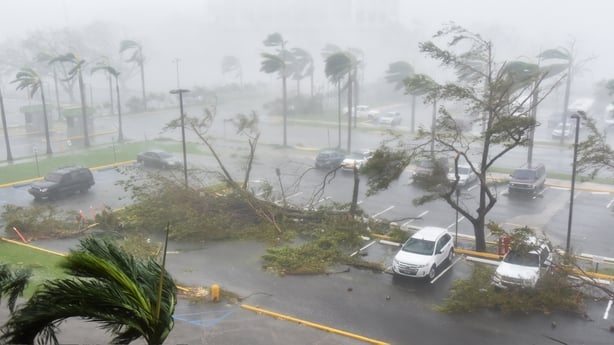US President Donald Trump has temporarily lifted restrictions on foreign shipping from the US mainland to Puerto Rico to help get fuel and supplies quickly to the US territory as it reels from the devastation of Hurricane Maria.
Puerto Rico's government had sought a waiver of the Jones Act, which limits shipping between US ports to US owned-and-operated vessels, to ensure there was no impediment to getting supplies to the Caribbean island.
Puerto Rico's 3.4 million people are facing severe shortages of water, food and fuel, as well as power outages.
Maria struck on 20 September as the most powerful hurricane to hit Puerto Rico in nearly 90 years, knocking out electricity to the entire island, causing widespread flooding and major damage to homes and infrastructure.
The waiver, which will be in force for ten days and will cover all products being shipped to Puerto Rico, was signed this morning by acting Department of Homeland Security Secretary Elaine Duke, the DHS said in a statement.
The waiver aimed to "ensure we have enough fuel and commodities to support lifesaving efforts, respond to the storm, and restore critical services and critical infrastructure operations, Mr Duke said.
White House spokeswoman Sarah Sanders used Twitter to announce that Mr Trump had authorised the waiver at the request of Puerto Rican Governor Ricardo Rossello.
The governor retweeted her post with a "Thank you @POTUS" - referring to Mr Trump's official Twitter handle.

The US government has periodically lifted the Jones Act for a temporary period following violent storms, including after hurricanes Harvey and Irma, which hit Texas and Florida in late August and earlier this month.
Even as the Federal Emergency Management Agency and the US military have stepped up relief efforts in Puerto Rico, many residents have voiced exasperation at the prolonged lack of electricity, reliable supplies of drinking water and other essentials.
Critics have said the island is not getting the same response from the federal government as it would if it were a US state, even though its residents are US citizens.
Mr Rossello has strongly defended the Republican president's response.
"The president has been very diligent, he has been essentially talking to us every day," the governor said in an interview with MSNBC.
Outlining some of the problems facing the island, Mr Rossello said: "Really our biggest challenge has been the logistical assets to try to get some of the food and some of the water to different areas of Puerto Rico.
"We need truck drivers," he said, adding he had asked the Department of Defense to send troops to help with transportation.
"The food is here, the water is here. We welcome more help. But critically, what we need is equipment," and people, either national or state troops, Mr Rossello said.

Brigadier General Rich Kim, who is the deputy commanding general of US Army North, arrived in Puerto Rico yesterday to take charge of coordinating military efforts.
Military assistance includes assessing the needs of the island's hospitals, trying to set up communications with each of the 78 municipalities and establishing a plan for distributing food and water, the Pentagon said yesterday afternoon.
In an interview with CNBC this afternoon, Mr Rossello referred to the parlous state of Puerto Rico's economy, which even before the destruction of Maria was grappling with $72 billion in debt.
The island filed the largest-ever US government bankruptcy in May.

